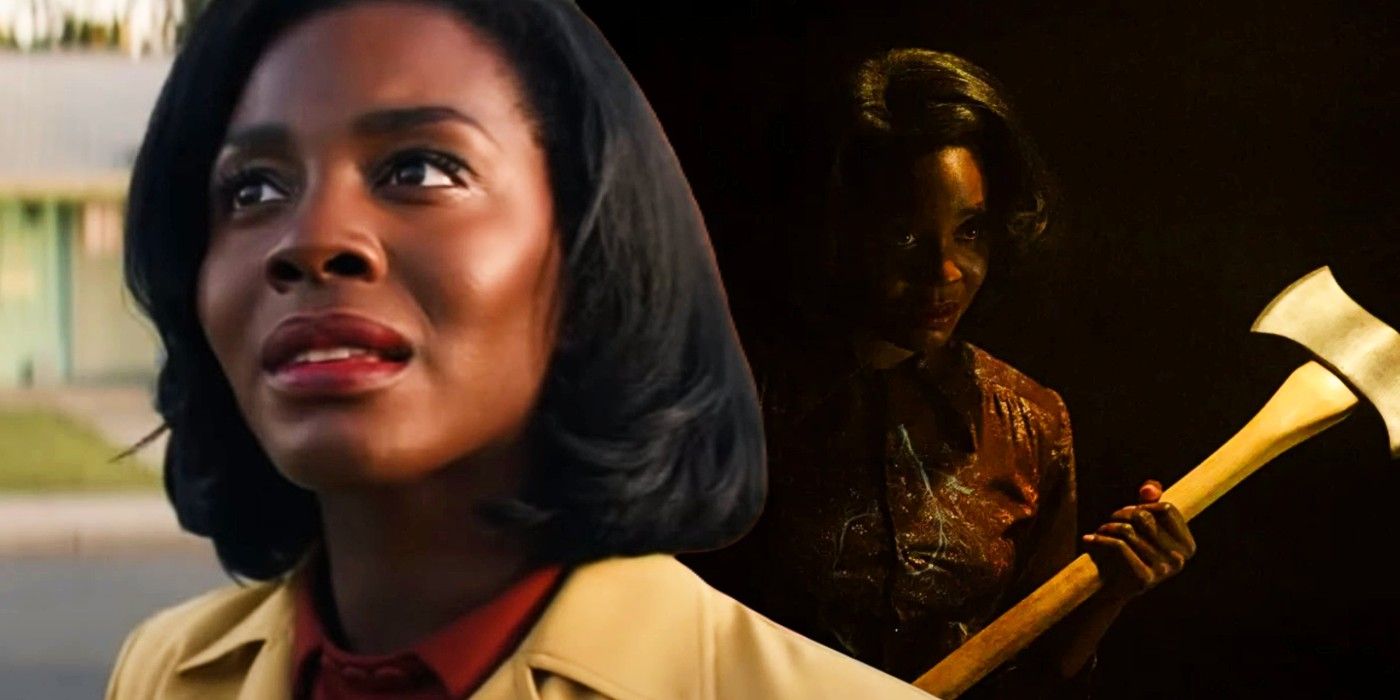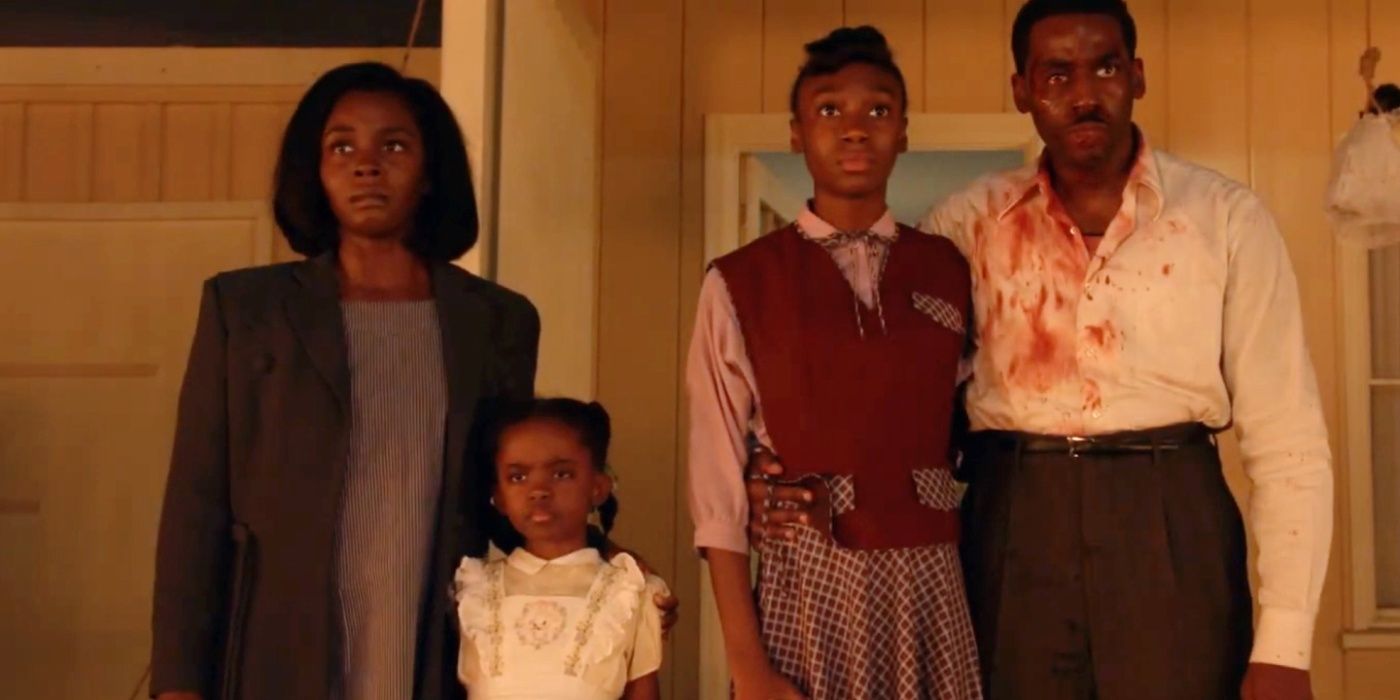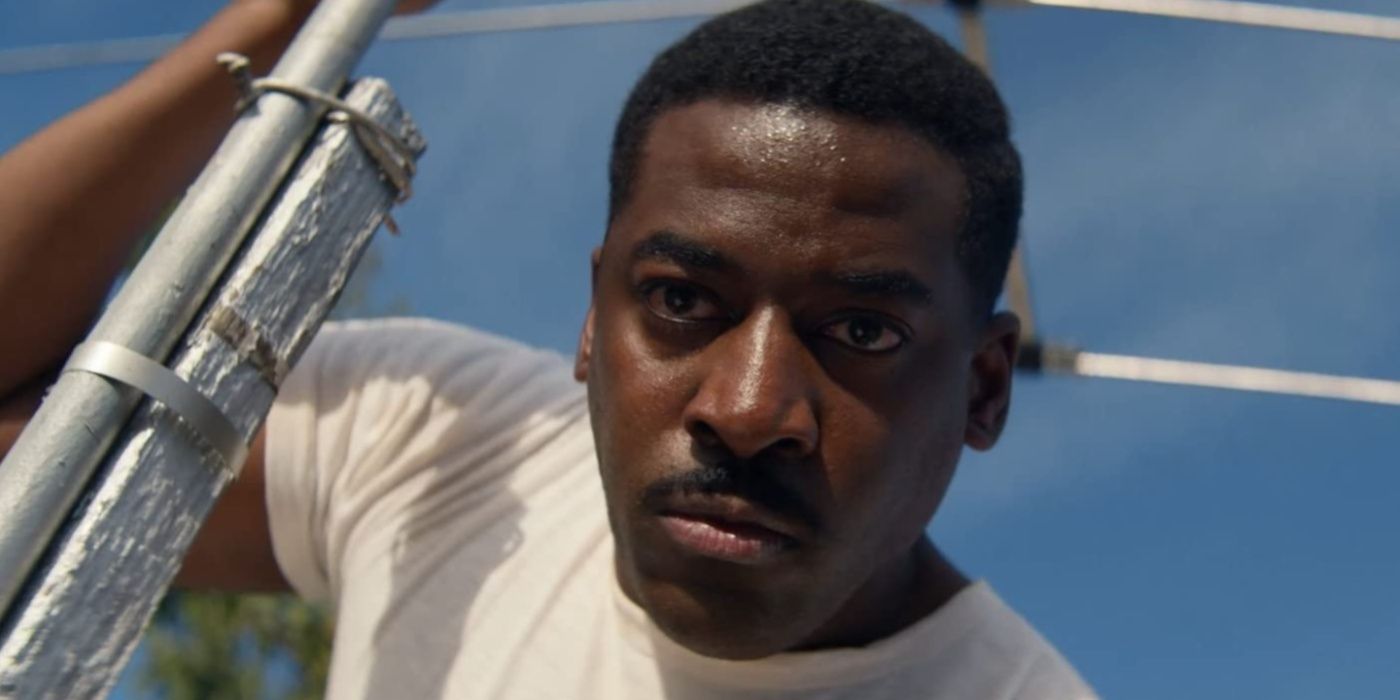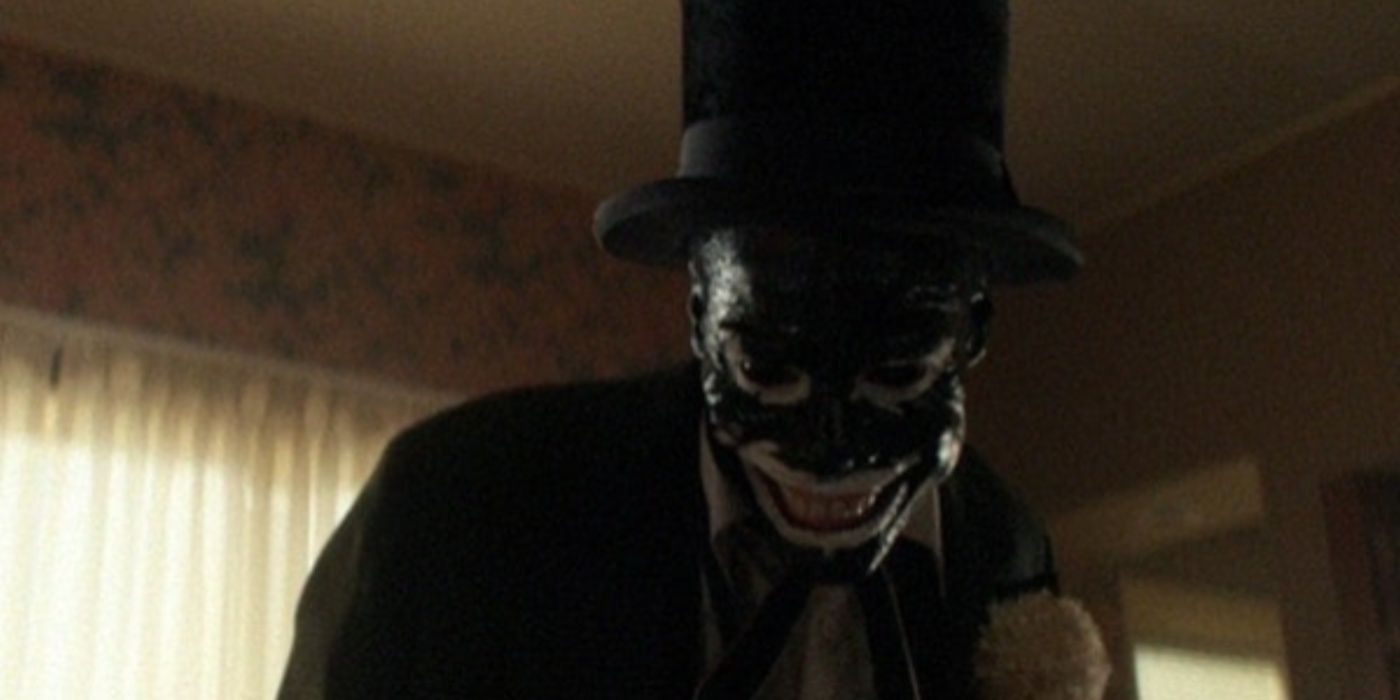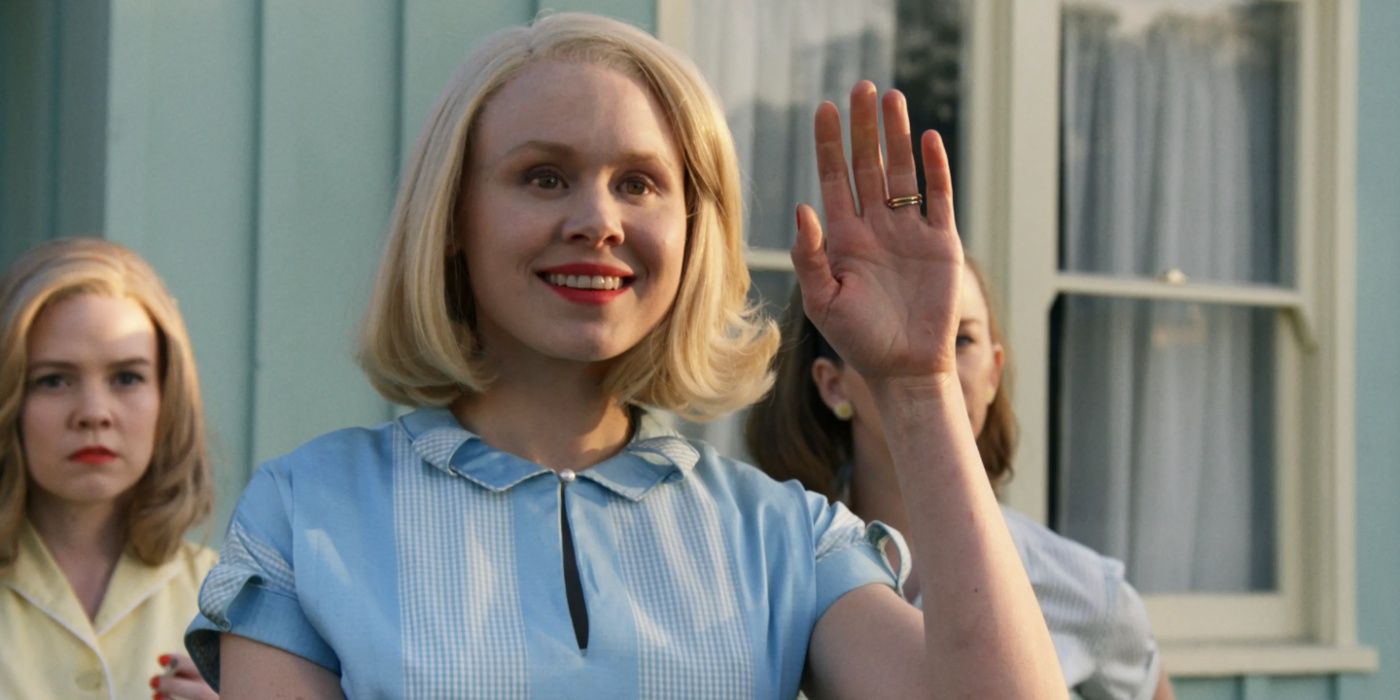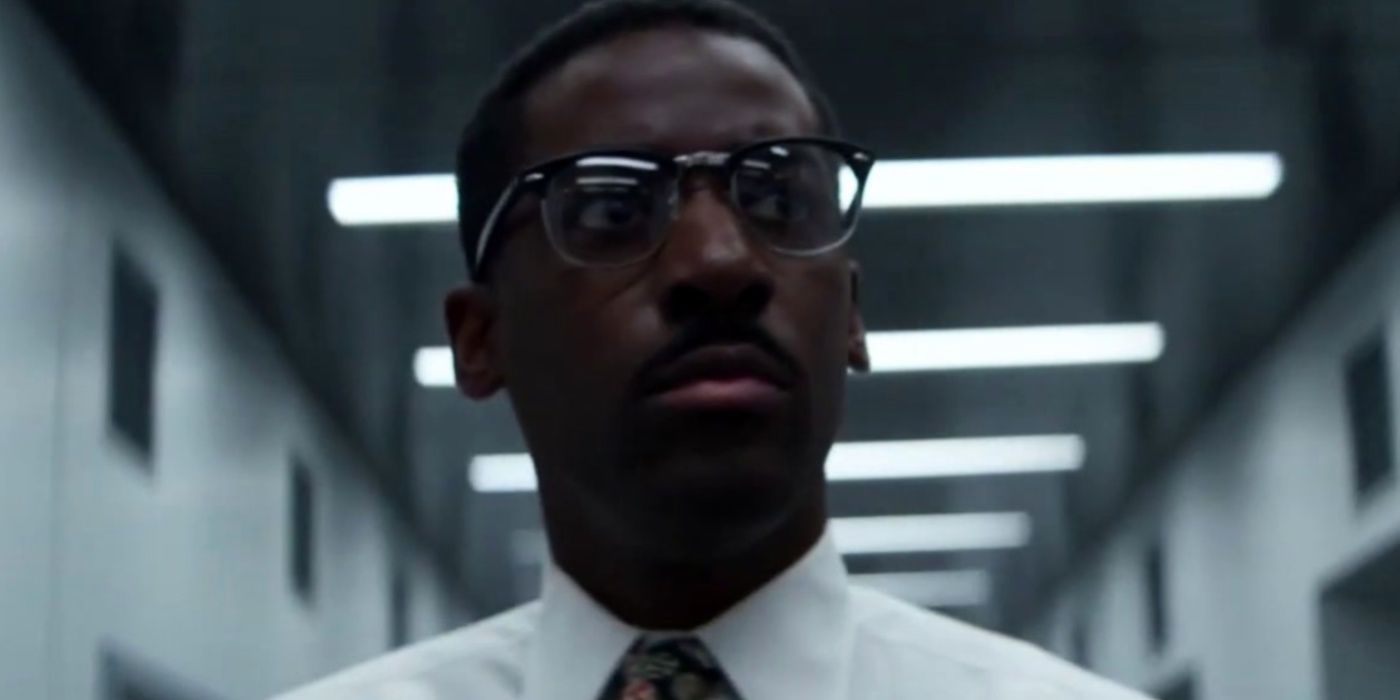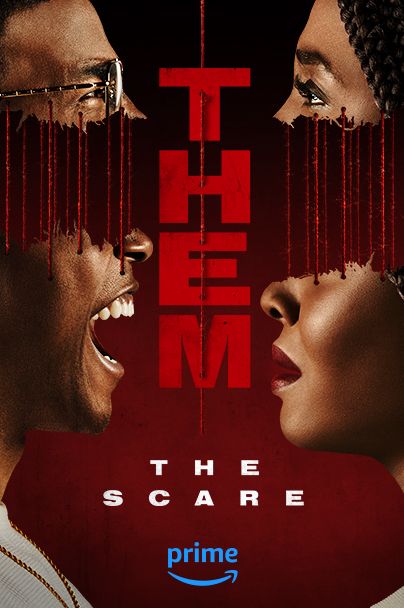Summary
- The Emory family's struggle in East Compton highlights systemic racism and the enduring legacy of oppression.
- Lucky's journey of redemption and healing showcases the power of courage and resilience in the face of darkness.
- Them's season 1 finale is a testament to the human spirit's capacity for survival and the importance of confronting inner demons.
Them, Amazon Prime Video's gripping horror anthology series, has captivated audiences with its chilling portrayal of the Emory family's descent into darkness, and Them season 1's ending explained everything. Set in 1950s America, the show navigates themes of racial injustice, trauma, and the supernatural, offering a haunting reflection on the horrors that lurk both within and beyond the shadows. As the Emorys relocate to East Compton in search of a fresh start, they soon find themselves trapped in a nightmare beyond comprehension.
Supernatural forces and racist neighbors alike conspire to torment the family, testing their resilience and threatening to tear them apart. As the season progresses, tensions escalate, culminating in a harrowing showdown in the season 1 finale. The Emorys confront their tormentors and the dark forces that have besieged them, facing their fears head-on in a battle for survival. With the stage set for further horrors to unfold, the season 1 finale sets the scene for a chilling continuation of the Emorys' journey, promising twists, turns, and heart-stopping revelations.
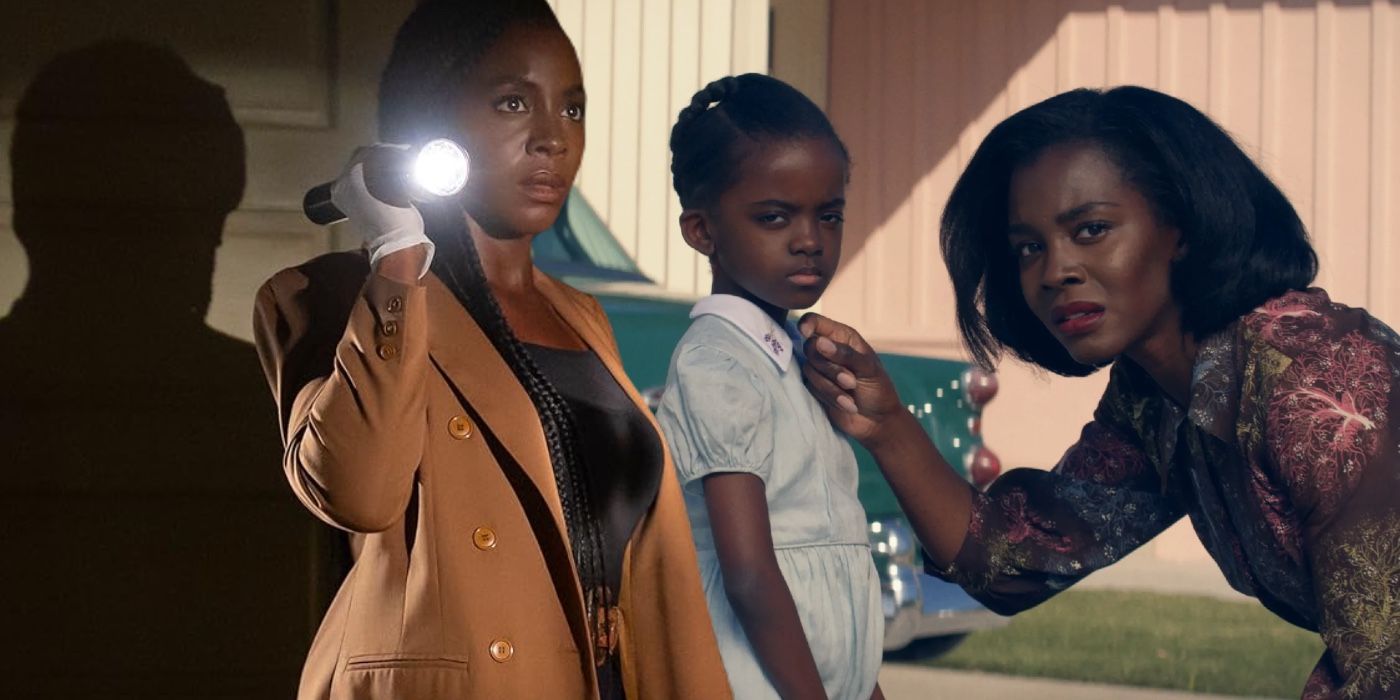
Them Season 3: Will It Happen? Everything We Know
Prime Video's anthology horror series Them has already scared up a sophomore season, but will the politically-charged terror return for season 3?
The Devolution Of The Emory House
The House Becomes A Twisted Reflection Of The Emorys' Deepest Fears
The Emory house, initially presented as a beacon of hope and new beginnings, undergoes a chilling transformation throughout Them season 1. At first glance, the haunted house in Them embodies the quintessential American Dream—a spacious home in a picturesque neighborhood, promising safety and prosperity for the Emory family. However, as the narrative unfolds, the house gradually reveals its sinister underbelly, becoming a nightmarish prison that traps the family in a web of terror. The once-inviting interiors become imbued with an aura of dread, with each room concealing secrets and horrors beyond imagination.
Within the walls of their once-promising sanctuary, the Emory house undergoes a chilling metamorphosis, becoming a twisted reflection of the family's deepest fears and traumas. Henry's attempts to return to safety are thwarted by the sinister machinations of the house itself, trapping him in a surreal maze of shifting realities and haunting memories. As the physical and supernatural boundaries blur, the home becomes a battleground for the Emorys' struggle for survival.
The house often plays tricks on the Emory family, such as when the bathroom becomes Ruby's high school restroom, playing with her anxieties.
Lucky Saves The Emory Family & Overcomes Her Grief
Lucky Finds Redemption & Healing Years After The Loss Of Her Son
In the climactic showdown of Them season 1, Lucky Emory emerges as a beacon of strength and resilience, confronting the supernatural forces that threaten to tear her family apart. Central to this confrontation is her battle with the enigmatic Black Hat Man, an evil spirit that embodies the darkest aspects of racial oppression and trauma. As the embodiment of the Emorys' deepest fears and insecurities, Black Hat Man is a formidable adversary, manipulating their emotions and exploiting their vulnerabilities with chilling precision.
Throughout the season, Lucky grapples with profound grief and guilt stemming from the tragic loss of her infant child, Chester. Haunted by the specter of her son's death, she struggles to find solace amidst the chaos and horror that surrounds her. However, as the season reaches its climax, Lucky undergoes a transformative journey of self-discovery and empowerment, ultimately finding the strength to confront her inner demons and face the horrors that threaten her family.
In a powerful act of defiance, she refuses to let her son's memory be tarnished by the darkness that surrounds her, reclaiming her agency and asserting her identity as a survivor.
In the showdown with Black Hat Man, Lucky confronts the spirit head-on, drawing upon her courage and resilience to defeat the darkness that has plagued her family. Through sheer determination and unwavering resolve, she refuses to succumb to despair, emerging victorious in her battle against evil. In a pivotal moment of catharsis, Lucky confronts the spectral embodiment of her grief and guilt, refusing to be defined by past tragedies.
As she confronts Black Hat Man, one of Them's scariest ghosts, Lucky undergoes a profound transformation. She sheds the shackles of her grief and embraces the promise of a new beginning. In a powerful act of defiance, she refuses to let her son's memory be tarnished by the darkness that surrounds her, reclaiming her agency and asserting her identity as a survivor. Through her courageous actions, Lucky saves her family and finds redemption and healing, emerging stronger and more resilient than ever before.
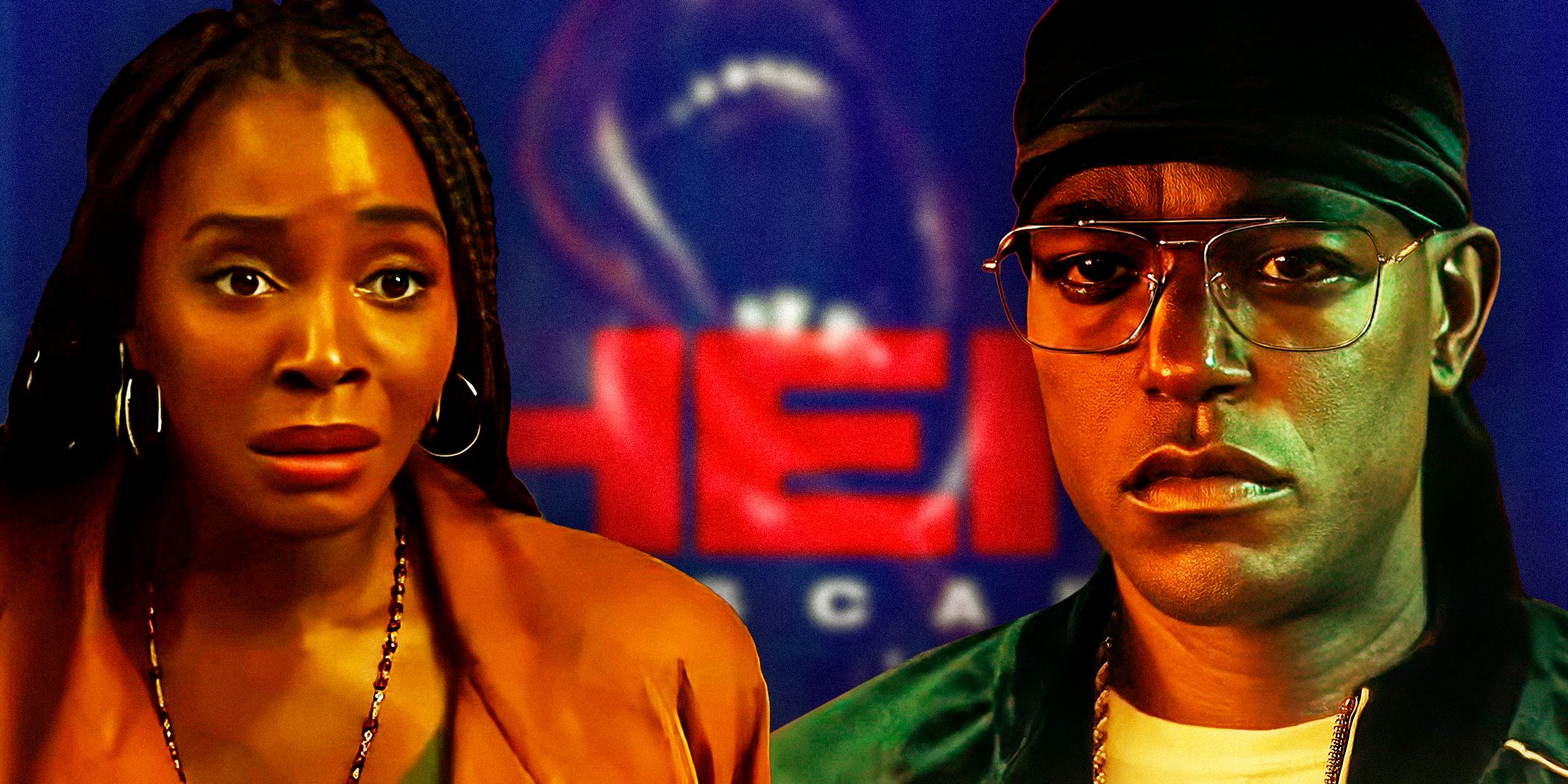
Amazon's Them Season 2 Cast & Character Guide
The horror and suspense of Them: The Scare is supported by its deep cast of talented actors, and their performances drive the show forward.
Henry Is Haunted By Demons From The Past
The Malevolent Forces Take Advantage Of Henry's Past To Manipulate Him
Throughout Them season 1, Henry Emory's character arc is defined by his harrowing struggle with post-traumatic stress disorder and the lingering traumas of his past. As a veteran, Henry carries the weight of his wartime experiences, haunted by World War II memories of violence, loss, and survival. His PTSD manifests in a variety of ways, from debilitating flashbacks and nightmares to episodes of intense emotional distress, rendering him vulnerable to the horrors that unfold in East Compton.
Henry's battle with his inner demons is exacerbated by the pervasive racism and hostility that he encounters in his new neighborhood. As a Black man living in a predominantly White community, he faces constant discrimination and harassment, further exacerbating his feelings of isolation and despair. Moreover, the supernatural hauntings that plague the Emory house serve as a constant reminder of the trauma that Henry has endured, triggering his PTSD and exacerbating his mental anguish.
Despite his struggles, Henry demonstrates remarkable resilience and courage in the face of adversity. Throughout the season, he fights tirelessly to protect his family and confront the malevolent forces threatening their safety. However, as the horrors of East Compton escalate, Henry's mental state deteriorates, pushing him to the brink of despair. Ultimately, his journey is a testament to the enduring legacy of trauma and the resilience of the human spirit, as Lucky forgives him for not being there, and he confronts his inner demons and finds redemption amidst the darkness.
Da Tap Dance Man, Explained
His True Identity Is A Reminder That Perpetrators Of Racial Violence Often Hide Behind Masks
Among the myriad evil spirits that haunt the Emory family in Them season 1, Da Tap Dance Man emerges as a particularly sinister and enigmatic figure. His unsettling presence looms large throughout the season, serving as a chilling embodiment of rage, manipulation, and racial oppression.
Da Tap Dance Man's eerie tap-dancing and haunting visage evoke a sense of dread and unease, signaling his nefarious intentions and malevolent influence over the Emorys. Throughout the season, Da Tap Dance Man's actions and motivations remain shrouded in mystery, adding to his aura of menace and making him the scariest part of Them season 1. He exerts an evil influence over the Emorys, exploiting their fears and insecurities for his own twisted purposes.
By masquerading as a spectral embodiment of Black trauma and suffering, Da Tap Dance Man symbolizes how systemic racism dehumanizes and exploits marginalized communities.
The reveal that Da Tap Dance Man is, in fact, a White man underscores the pervasive influence of White supremacy and racial violence in the lives of Black people. By masquerading as a spectral embodiment of Black trauma and suffering, Da Tap Dance Man symbolizes how systemic racism dehumanizes and exploits marginalized communities. His true identity serves as a stark reminder that the perpetrators of racial violence often hide behind masks of anonymity, perpetuating cycles of oppression and injustice with impunity.
Even though Da Tap Dance Man is revealed to be a White man, the ghost is played by Black actor Jeremiah Birkett.
Symbolically, Da Tap Dance Man represents the insidious nature of racism and the enduring legacy of oppression that permeates American society. His manipulation of the Emorys reflects how systemic injustice can manifest as internalized trauma and self-destructive behavior, perpetuating cycles of violence and suffering. Moreover, Da Tap Dance Man's presence serves as a potent reminder of the power dynamics at play in East Compton, where Black residents are subjected to constant surveillance, harassment, and dehumanization by their White neighbors.
|
Every Them Episode In Which Da Tap Dance Man Appears |
||
|---|---|---|
|
Season |
Episode |
Episode Title |
|
1 |
3 |
"DAY 4" |
|
1 |
4 |
"DAY 6" |
|
1 |
6 |
"DAY 7: MORNING" |
|
1 |
7 |
"DAY 7: NIGHT" |
|
1 |
8 |
"DAY 9" |
|
1 |
10 |
"DAY 10" |
|
2 |
8 |
"The Box" |
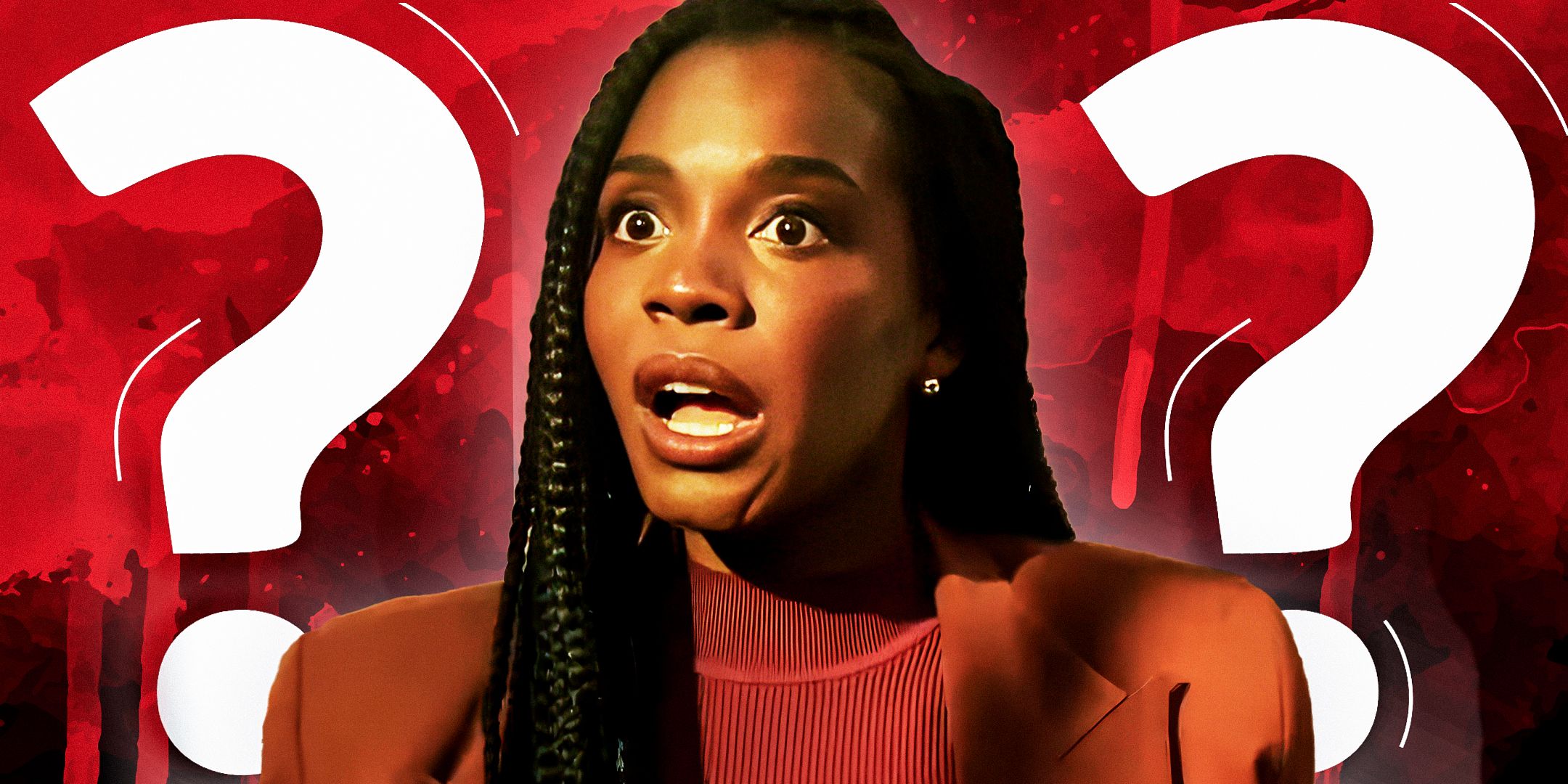
10 Biggest Unanswered Questions & Mysteries After THEM: The Scare
THEM: The Scare came to an end with distinctive discoveries and a fresh understanding. However, numerous questions still remain.
The Emory’s Struggle For Acceptance Reflects Current Issues In The U.S.Them Is A Powerful Reminder Of The Importance Of Confronting Systems Of Oppression
The Emory family's ordeal in East Compton is a poignant reflection of the pervasive struggle for acceptance and equality that continues to plague American society. From the moment they arrive in their new neighborhood, the Emorys are met with hostility, racism, and discrimination from their White neighbors. This mirrors the real-life experiences of countless individuals and communities who face systemic bigotry and marginalization daily.
The Emorys' struggle for acceptance underscores the deep-rooted divisions and inequalities that persist in American society, highlighting the stark disparities in power, privilege, and opportunity that exist along racial lines. Despite their best efforts to integrate and assimilate into their new community, the Emorys are met with suspicion, hostility, and violence, revealing the enduring legacy of racism and prejudice that continues to shape the lives of marginalized communities across the country.
In confronting the racism and discrimination they encounter in East Compton, the Emorys become unwitting participants in a larger struggle for social justice and equality. Their experiences serve as a powerful reminder of the importance of confronting and dismantling oppression, discrimination, and inequality systems to create a more just and equitable society for all. Ultimately, the Emorys' story serves as a call to action, challenging viewers to confront their biases and prejudices and work towards a future where acceptance, equality, and justice are not just ideals but realities for all.
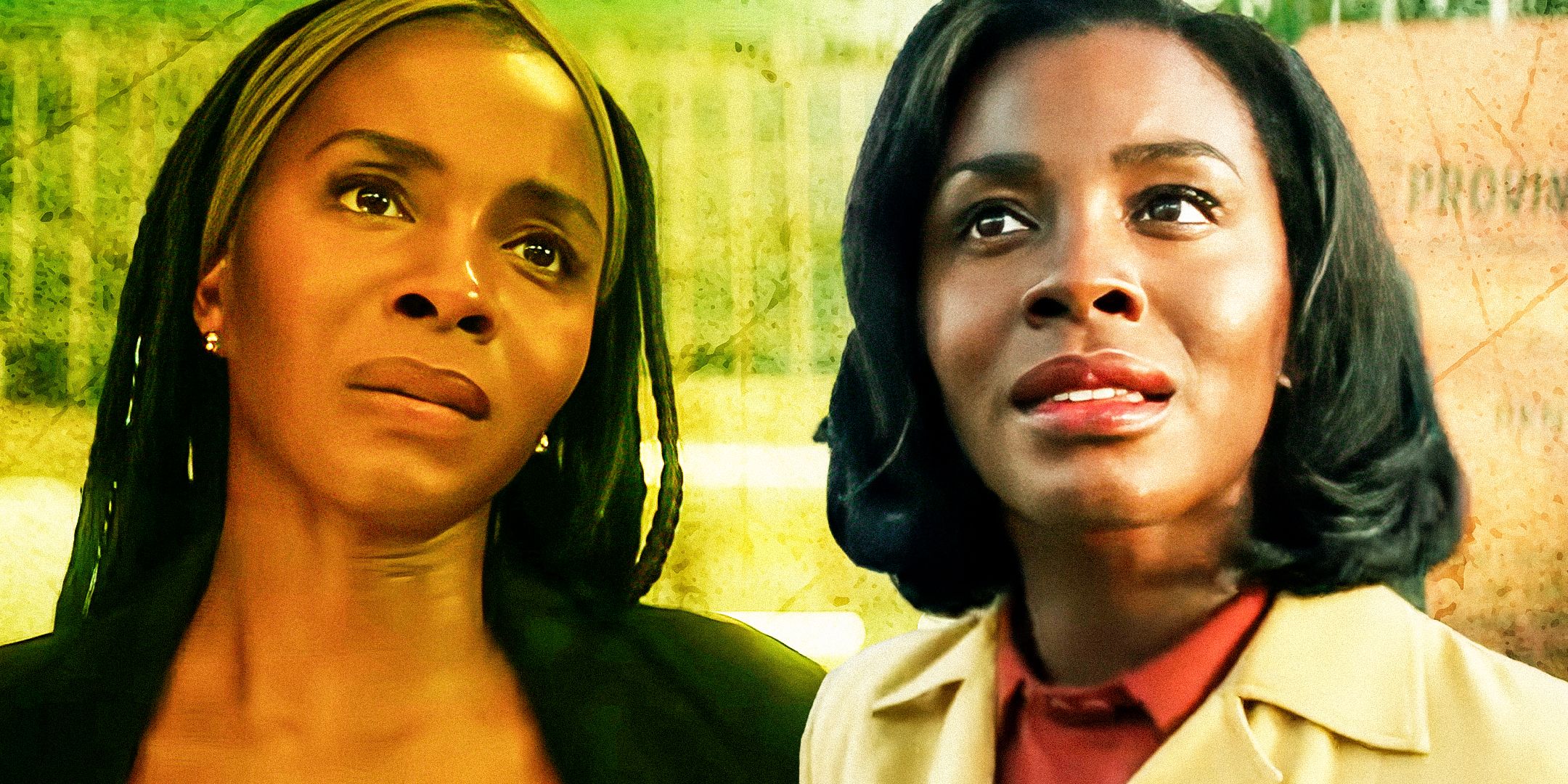
10 Reasons Why THEM Season 2's Reviews Are So Much Better Than Season 1
THEM season 1 divided audiences, but its second season, THEM: The Scare, has garnered significant praise, offering a much better viewing experience.
The Real Meaning Of Them’s Season 1 Ending
The Season Finale Is A Testament To The Power Of Courage & The Enduring Human Capacity For Survival
The Emorys are confronted with a barrage of supernatural and all-too-real horrors. From the evil spirits that haunt their home to the relentless racism and discrimination they face in their community, the Emorys are pushed to their limits and forced to confront the darkest aspects of humanity. Yet, despite seemingly insurmountable odds, they refuse to be broken, finding strength and solidarity in their shared struggle. At its core, the ending is a testament to the resilience of the human spirit as the Emorys confront their inner demons and reclaim their power in the face of overwhelming adversity.
The ending is a reminder that, even in the darkest of times, there is hope for redemption and healing. As the Emorys stand together, united in their determination to confront the forces that seek to destroy them, they serve as a beacon of hope for viewers everywhere. In the end, Them season 1 is not just a story of horror and despair, but a testament to the power of courage, resilience, and the enduring human capacity for survival.


